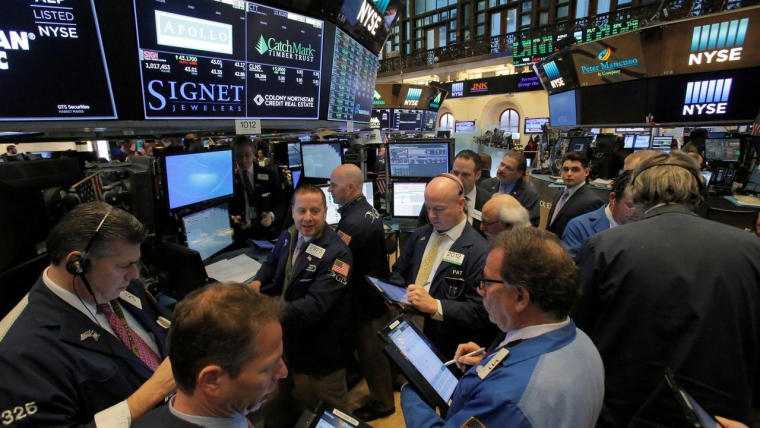
It has been a quiet start to the week with the US public holiday. Currencies show modest movements apart from overt GBP weakness, with nerves ahead of Parliament re-opening and speculation about a new general election.
US equities and bond markets are closed for the Labor Day holiday but S&P futures opened the week on a negative note and are currently down 0.9%. Bloomberg reports that the US and China are struggling to agree on a schedule for a planned meeting this month to continue trade talks after the recent escalation. There is mistrust on both sides and the US went ahead with further punitive tariffs from 1 September even after China requested a delay. China’s Ministry of Commerce issued a statement yesterday saying that it planned to file a complaint at the WTO against the US tariffs under the dispute settlement process.
US Treasury futures are little changed from the NY close on Saturday while Germany’s 10-year rate is unchanged at minus 0.71%. Currency markets also show small movements apart from some weaker price action for GBP as Brexit comes into focus. GBP is down 0.8% to 1.2060. A cross-party alliance of MPs have drawn up a plan to seize the agenda when Parliament re-opens tonight (NZ time) to force legislation that will block a no-deal Brexit and delay Brexit by three months to the end of January 2020 if a new deal isn’t agreed.
Boris Johnson gave a brief speech outside his office saying "There are no circumstances [under] which I will ask Brussels to delay" and he argued that if Parliament blocks a no-deal divorce then it will weaken the UK’s negotiating position. Johnson insisted he didn’t “want” a general election but this hasn’t closed the door on speculation that there might be no other choice. Bloomberg reports a senior UK official saying Johnson is planning for a general election on October 14 if he loses a crucial vote over a no-deal Brexit this week.
In economic data, the UK manufacturing PMI slumped further, below expectations, to its weakest level in seven years. The euro-area manufacturing PMI was unrevised from its earlier subdued estimate of 47.0. The Caixin China manufacturing PMI showed a surprising recovery back above the 50 mark, but the underlying details such as new orders remained weak.
The NZD is currently 0.6310, little changed from last week’s close. NZ’s terms of trade data showed a second consecutive quarterly increase in Q2 and within 2½% of the record high set at the end of 2017. NZ’s export commodity prices have held up well during the global economic slowdown. However recent NZD weakness reflects the weaker outlook for global growth and commodity prices. The currency is looking cheap on long-term valuation metrics and against the strong terms of trade, but remains vulnerable as long as the US-China trade war continues alongside the global economic uncertainty.
The AUD has tracked a little lower, down 0.3% to 0.6715. This has seen NZD/AUD push higher after a poor run over recent weeks but it is meeting resistance just under the 0.94 mark. The USD DXY index continues to probe fresh multi-year highs above the 99 mark by virtue of the weak GBP and EUR remaining soft around the 1.0970 mark.
In the day ahead, Australian retail sales and current account data are released ahead of the RBA’s policy announcement. The Bank is widely expected to keep policy unchanged but maintain a clear easing bias, linked to both labour market and global developments.
The GDT dairy auction is expected show flat to modest downside to pricing. The market expects the US ISM manufacturing index to be flat, after its recent tumble, but the risk feels weighted to the downside.
2 Comments
Read this ...............The world has gone crazy and clearly all is not well in the state of Denmark ........Jyske, Denmark's third largest bank, is offering a mortgage rate of -0.5 per cent for 10 years, which means borrowers' debts are reduced by more than the amount they pay back.
Stimulating a dead economy ?
Is this what deflation looks like ?
All negative interest rates are an attempt by banksters to keep themselves in control.
All lower interest rates do is encourage the masses to take on more debt, when they can't afford the debt they have in the first place. The better solutions are for governments to regulate the banks, by limiting their ability to create credit at their liberty. A more sustainable approach to growth rather than the boom bust cycles they engineer through the fractional reserve system, where the banksters bought off or blackmailed politicians to remove the gold standard.
Creating more debt wont solve the problem. Current living costs are too high for the masses, with the main culprit being high accommodation costs; being either high home prices or high rentals prices.
The solutions are giving more money to the masses that need it and regulating price setting industry, which would allow for more competition and other businesses to prosper. However there is a lot of misinformation out there spread by vested mothership interests, to keep their party going.
These tax havens, motherships or death stars (which hide the wealth of the elite); whatever you want to call them, know the pitchforks are coming. Nature wiped out one in the last day or two with Cyclone Dorian.

We welcome your comments below. If you are not already registered, please register to comment
Remember we welcome robust, respectful and insightful debate. We don't welcome abusive or defamatory comments and will de-register those repeatedly making such comments. Our current comment policy is here.